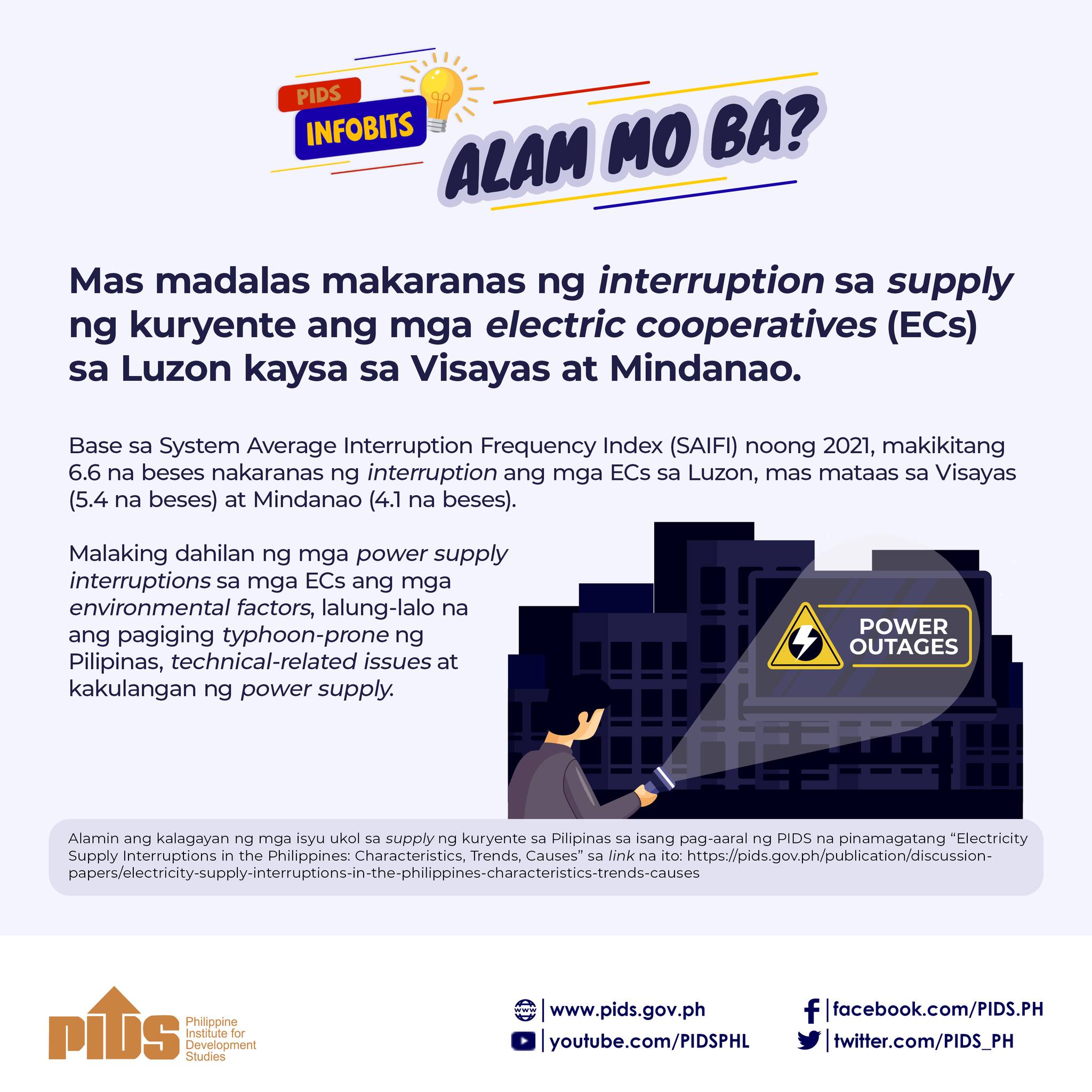The power outages that lasted up to 5 hours in the Philippines caused the country to suffer an economic loss of approximately ₱556 million. It could experience more losses if the issues concerning the energy sector are left unmanaged.
Convention to Tackle Power Outages
The Philippine Institute for Development Studies (PIDS) congregated energy experts in a webinar to discuss the consequences of power failures and probable solutions. The value of lost load (VoLL) or the monetary criterion stating the costs of interruption of electricity supply on a macro level measures the effect of power interruption on the economy. This is according to Anne Estorco Montelibano, president of the Philippine Independent Power Producers Association Inc.
“In 2020, the country’s VoLL was at ₱20.65 per kilowatt hour (kWh). To put this into perspective, for every five hours of no electricity, our country loses about 500 megawatts, which equates to P556 million in economic losses. It’s a hefty amount to lose for a developing country,” Montelibano said.nuclea
Montelibano added that in alleviating the losses, the energy sector could identify an acceptable period. They could also specify the number of hours of power interruption called loss of load expectation (LOLE). A solid energy regulatory and policy framework is necessary for developing and administrating nuclear power plants.
Energy Undersecretary Rowena Cristina Guevara specified that inadequate power involves many factors. It includes supply and system issues as well as impediments to the access of private companies or possible generators.
What Causes Power Failure?
The world depends on electricity; even a momentary power failure can result in monetary setbacks, chaos, or life loss. It can also lead to data loss, a decline in productivity, or income loss.
Several power outages are due to natural weather occurrences, such as heavy storms, lightning, snow, or flood. It can result in short circuits, which, in turn, can cause fire, explosion, or circuit damage.
A brownout occurs due to a tumble in voltage, causing the lights to dim. It may not be a complete power failure. However, it can negatively impact electrical equipment.
On the other hand, blackouts are total power failures in a specific geographic area and are the most severe. Depending on its cause, restoring power is usually a complicated task.
Revoking or Retaining NGCP’s Franchise
During the past few weeks, the Ninoy Aquino International Airport (NAIA) cancelled multiple domestic Cebu Pacific flights due to several unexplained power outages. This prompts several lawmakers to urge President Ferdinand Marcos Jr to revoke the National Grid Corp. of the Philippines (NGCP) franchise.
The NGCP is the country’s only power grid operator and appropriated transmission operations from the government in 2009. Notably, it expanded transmission network throughout the country.
Even with the grid operator’s poor performance, the president isn’t anxious to revoke the company’s franchise of the current privately-owned company. This is despite of the security concerns raised by some authorities regarding its operations.
“What I am hearing from news items is about security problem. Maybe that’s part of the discussion, but I am looking at the performance, if their performance is good, and if they are following the contract between government and the grid corporation,” Marcos said.
However, Senator Raffy Tulfo has every to urge the president to revoke NGCP’s franchise. He cites China’s comeptence to remotely penetrate the national grid and at the same time, “sabotage it,” threatening the Philippines’ national security.
The president said that revoking NGCP’s franchise may result in “gap” in experience in terms of management. Revoking the franchise means findign somebody else to run the grid.












